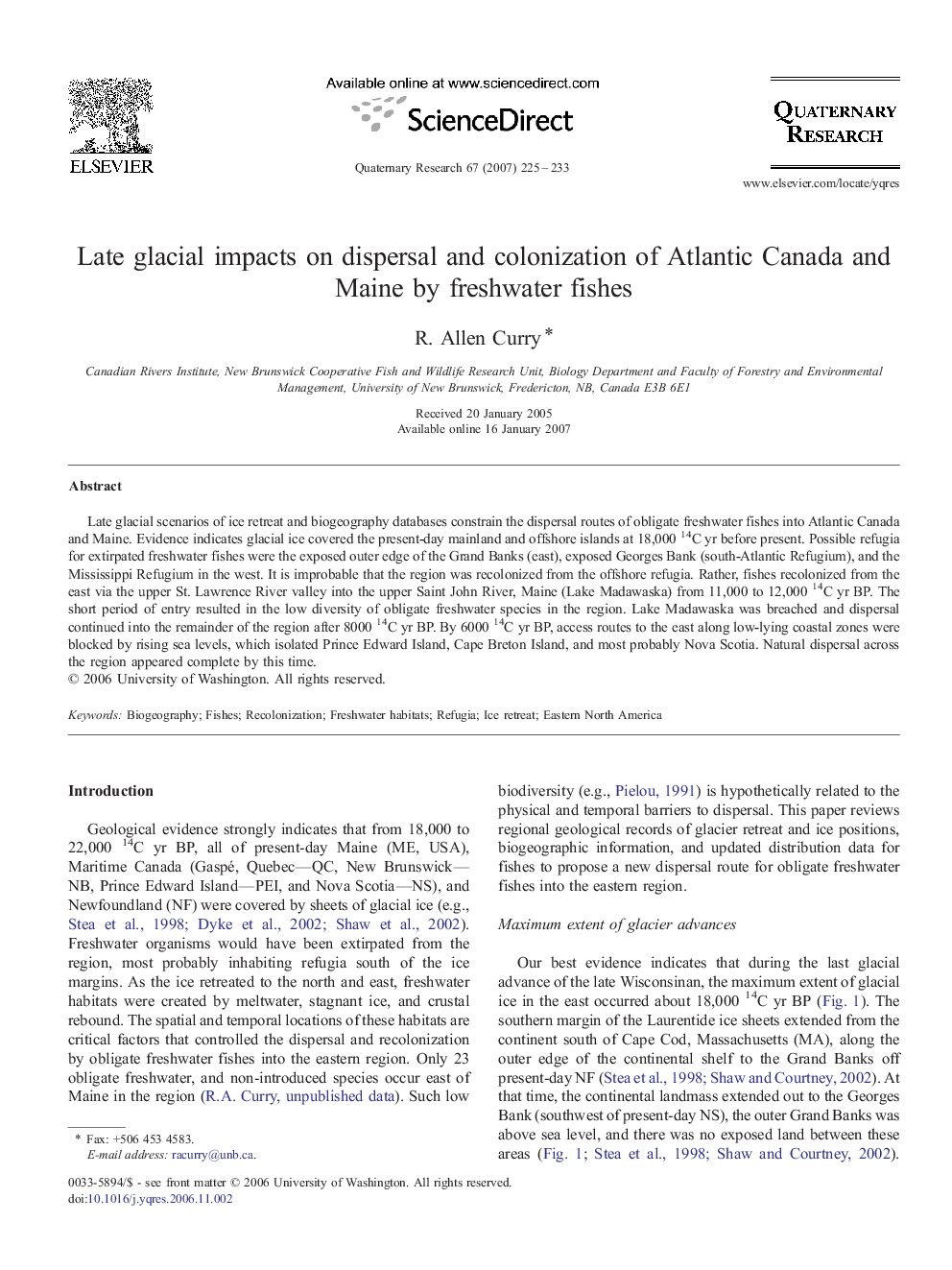| کد مقاله | کد نشریه | سال انتشار | مقاله انگلیسی | نسخه تمام متن |
|---|---|---|---|---|
| 1045889 | 944839 | 2007 | 9 صفحه PDF | دانلود رایگان |

Late glacial scenarios of ice retreat and biogeography databases constrain the dispersal routes of obligate freshwater fishes into Atlantic Canada and Maine. Evidence indicates glacial ice covered the present-day mainland and offshore islands at 18,000 14C yr before present. Possible refugia for extirpated freshwater fishes were the exposed outer edge of the Grand Banks (east), exposed Georges Bank (south-Atlantic Refugium), and the Mississippi Refugium in the west. It is improbable that the region was recolonized from the offshore refugia. Rather, fishes recolonized from the east via the upper St. Lawrence River valley into the upper Saint John River, Maine (Lake Madawaska) from 11,000 to 12,000 14C yr BP. The short period of entry resulted in the low diversity of obligate freshwater species in the region. Lake Madawaska was breached and dispersal continued into the remainder of the region after 8000 14C yr BP. By 6000 14C yr BP, access routes to the east along low-lying coastal zones were blocked by rising sea levels, which isolated Prince Edward Island, Cape Breton Island, and most probably Nova Scotia. Natural dispersal across the region appeared complete by this time.
Journal: Quaternary Research - Volume 67, Issue 2, March 2007, Pages 225–233